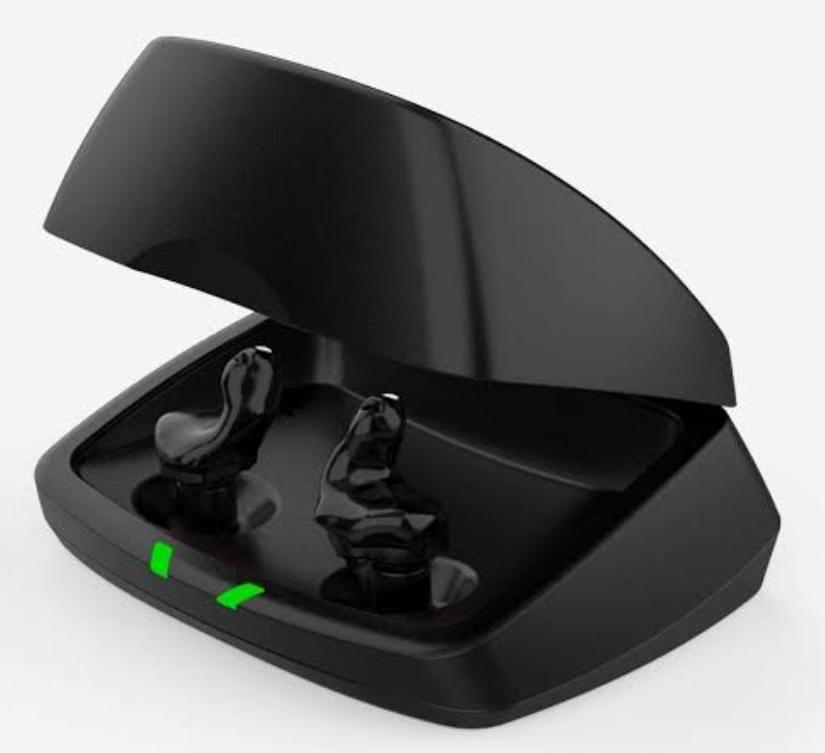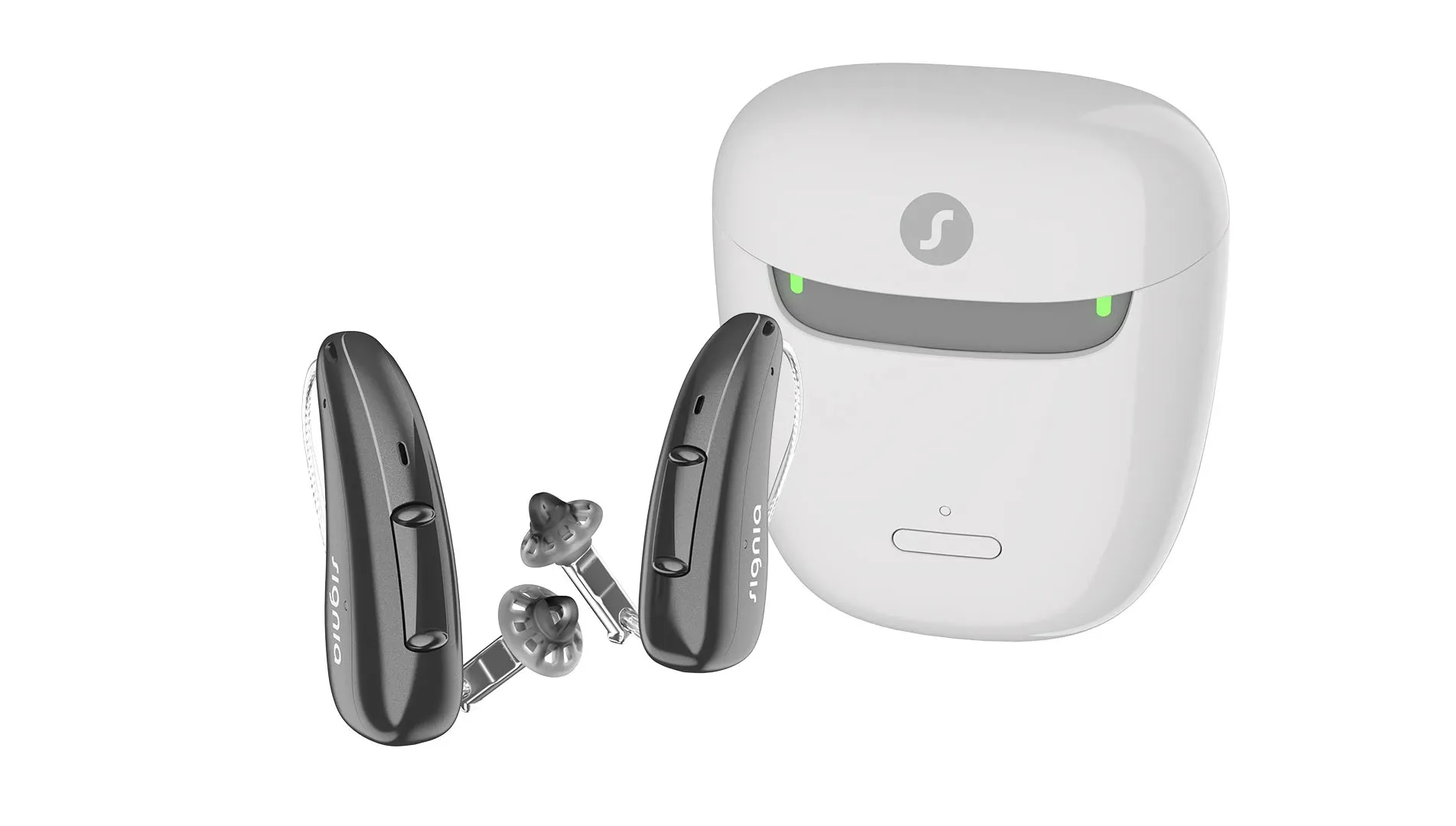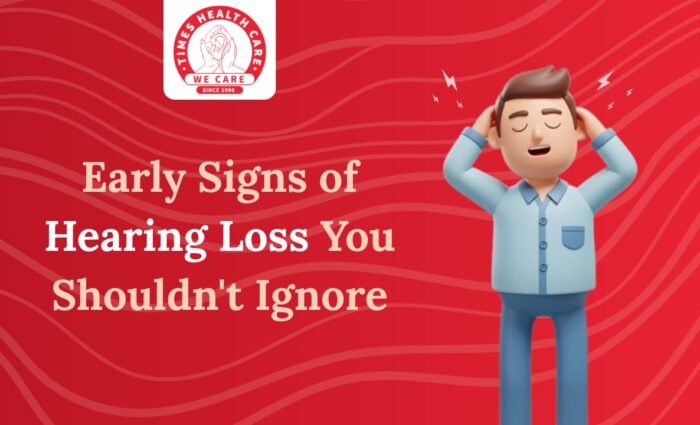“”Most assume hearing loss is a concern only in its advanced stages, when conversations become difficult to follow or constant repetition is needed. But in truth, it usually begins gradually, with small signs that are easy to overlook.””
Many people tend to overlook or dismiss the subtle signs of hearing loss until it begins to seriously impact their daily lives.
In this blog, we’ll uncover the early warning signs of hearing loss, explain why it’s important to take them seriously, and explore how modern hearing aids can make life simpler, more comfortable, and more enjoyable.
Why Hearing Loss Often Goes Unnoticed
Unlike vision problems—where blurry text on a page is an immediate red flag—hearing loss develops gradually. At first, the signs may seem insignificant: missing a few words in conversation, asking people to repeat themselves, or turning the TV volume up slightly.
Because the brain works overtime to fill in these gaps, many people don’t realise just how much effort they’re putting into following along. Over time, this constant strain can become mentally exhausting. Unfortunately, by the time most people recognise the problem, the condition has already progressed—and help is sought much later than it should be.
Subtle Signs of Hearing Loss
Recognizing the early signs of hearing loss can make all the difference in protecting your overall well-being. Here are some signals that it may be time to book a hearing test:
- Struggling in noisy places: You can hear voices but have trouble making out words in restaurants, markets, or group gatherings.
- Turning up the volume: If family members often say the TV or music is too loud while it seems fine to you, it could be an early sign.
- Difficulty on phone calls: Without visual cues like lip reading, conversations over the phone may feel unclear or harder to follow.
- Persistent ringing in the ears (tinnitus): A continuous ringing or buzzing sound can indicate underlying hearing issues.
- Mental exhaustion: Feeling unusually tired after conversations because your brain is working harder to fill in the gaps.
- Missing everyday sounds: Gradually losing awareness of small but important sounds like birds chirping, doorbells, or footsteps.
Even noticing just one or two of these signs is enough reason to consult a hearing care professional.
Why Early Detection Matters
Putting off treatment for hearing loss doesn’t only affect how you hear—it can also impact many areas of life. Research shows that untreated hearing loss is linked to:
- Cognitive decline: Extra strain on the brain can affect memory, focus, and overall mental sharpness.
- Social withdrawal: Avoiding conversations or group activities may lead to loneliness, reduced self-confidence, and isolation.
- Safety concerns: Missing alarms, horns, or warning signals can increase the risk of accidents.
- Lower performance at work or school: Misunderstanding instructions or missing details can hurt productivity and learning outcomes.
The earlier hearing loss is detected, the sooner you can take advantage of treatment options like hearing aids, which make it easier to stay connected, safe, and confident in daily life.
Why Modern Hearing Aids Are Different
No more heavy, visible devices. Today’s hearing aids are.
Here’s a smoother, more engaging rephrasing of your points:
- Discreet & modern: Today’s hearing aids are sleek and subtle—many fit snugly inside the ear canal or rest behind the ear with designs that are barely noticeable.

- Smart & connected: With Bluetooth technology, you can stream calls, music, and TV audio directly to your hearing aids from your phone, laptop, or other devices.
- Personalized for you: Advanced features such as noise reduction, directional microphones, and custom programs let you enjoy clearer sound whether you’re on a call, in a meeting, or listening to music.

- Rechargeable convenience: Forget tiny disposable batteries—simply recharge your hearing aids overnight, just like your smartphone.
At Times Health Care, we offer advanced Signia hearing aids that include RealTime Conversation Enhancement ,Bluetooth-enabled and app-based controls, making it easier for you to stay connected in every environment.
Taking the First Step
If you’ve started to notice even small difficulties, don’t wait for them to become bigger problems. The most important first step is scheduling a professional hearing test. It’s quick, completely painless, and gives you a clear understanding of your hearing health.
You may not need hearing aids immediately—but knowing your status provides peace of mind. And if a hearing aid is recommended, beginning sooner allows your brain to adjust more naturally, making the transition far easier.


